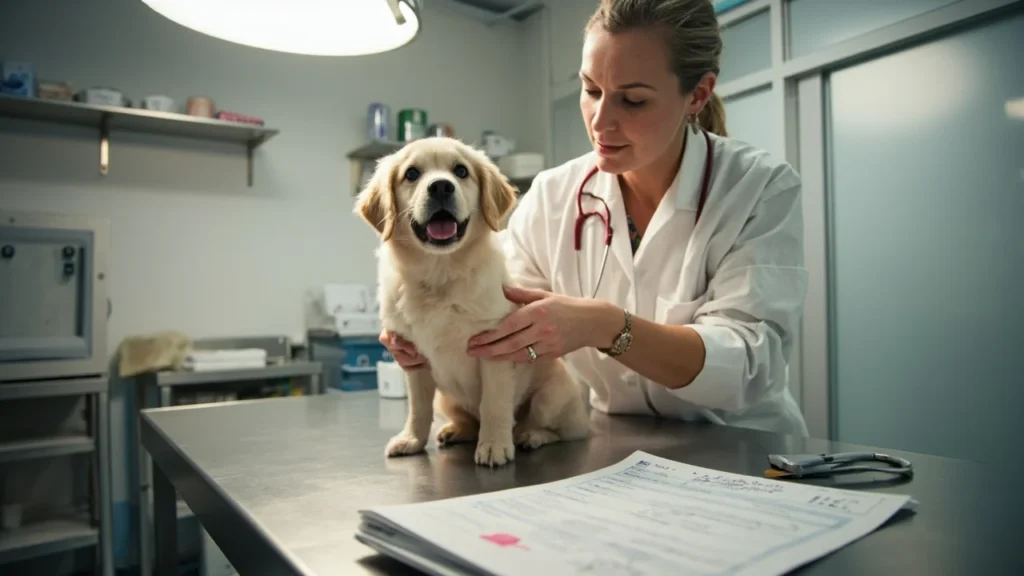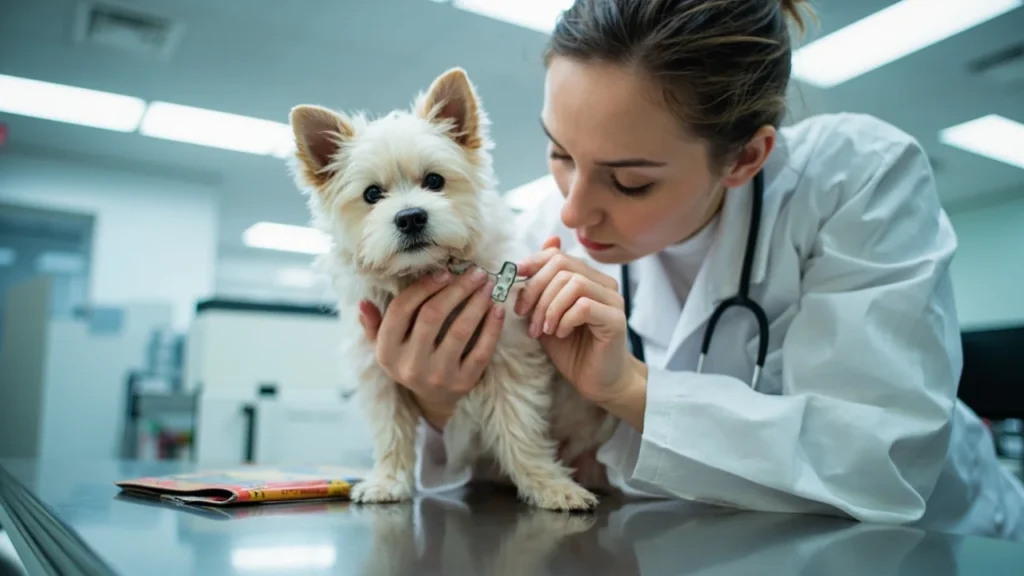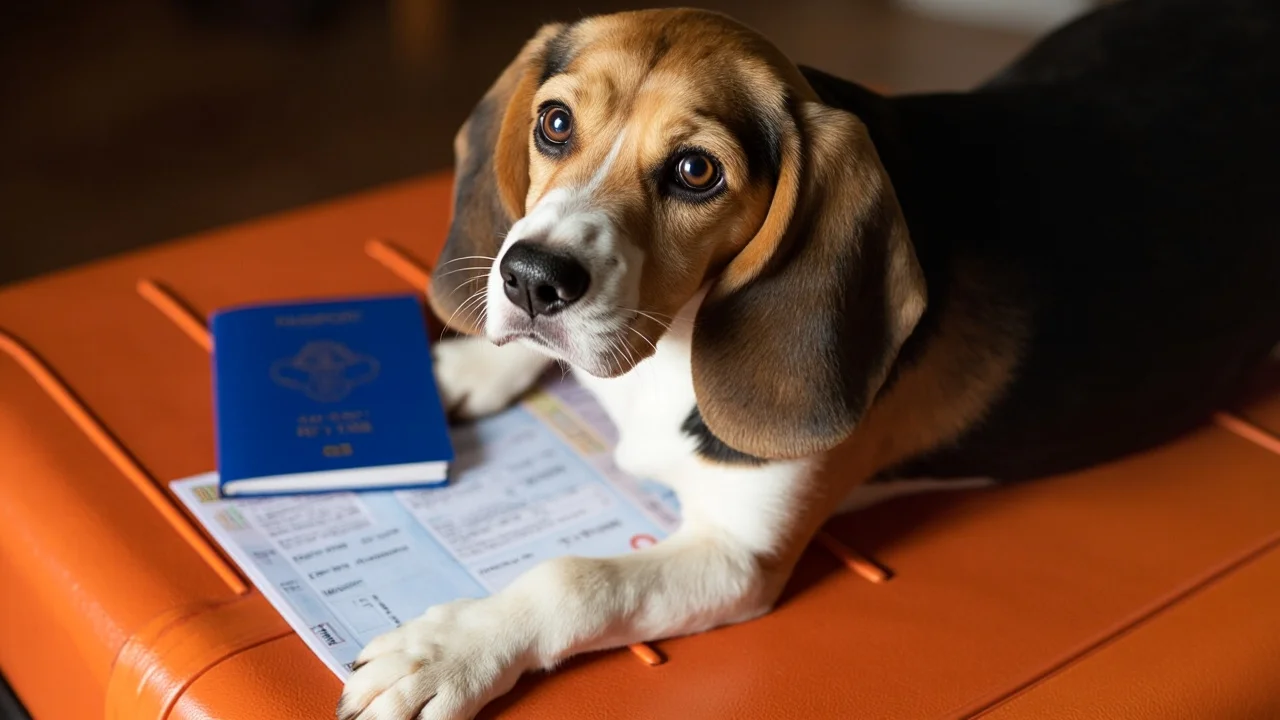To travel to other countries, it is a very emotional experience, especially when we can bring our four-legged friends to be with us. However, travelling with pets takes more than just prepare your travel suitcase. The documentation for travel with your pets is one of the most important aspects in order to ensure that everything runs smoothly and without any surprises along the journey. Many people don't know where to start, or what, exactly, is needed, and that is exactly what we're going to be talking about here.
Traveling with your pet to another country, it is a real adventure, but it also requires planning, especially when it comes to the paperwork. After all, you can't just grab the leash and take. Each country has its own set of rules and requirements for the entry of the animals in it, and if you don't follow these steps, and you end up with your pet, denied boarding, or even to get to its final destination.
Summary of the Content on
I've been through this with my own dog and I know how frustrating it is to deal with this kind of 'red tape'. Because of this, I want to share everything I've learned about the documentation for travel with pets, so that you are able to travel in the quiet, with no unwanted surprises.
What is in the Documentation for Travel with your Pets?

When it comes to the documentation you are travelling with pets -we're talking about all of the paper, and certificates that are required to make sure that your pet is able to travel legally and safely between different countries. This can include anything from certificates of health to specific authorization by the country of destination.
These documents are very important, not only to comply with legal requirements, but also to make sure that your pet is healthy during your trip. After all, it's a journey can be long and stressful for them, and it's our responsibility to make sure that everything is done for the well-being of our team-mate.
The documents Required for Travelling with Pets -
Here are some of the most common documents that you are likely to need to travel with your pet:
1. Health certificate
The health certificate is, without a doubt, one of the most important things that you need to travel with your pet. It is issued by a licensed veterinarian, and the role of this document is to certify that the animal is healthy and ready to go. The vet will perform a clinical evaluation of your pet, looking at issues such as health conditions, from heart and respiratory diseases, in addition to ensure it is free from any contagious diseases.
In some cases, a health certificate, which can also include the need for certain tests, such as parasitological investigations, or even specific test for the disease, which is the country of destination, may consider relevant. For example, in countries such as Australia and New Zealand, they have more stringent restrictions regarding the entry of the animals, and to demand that the elect to submit to tests for diseases such as leishmaniasis, in addition to other requirements.
It should be noted that the validity of a certificate can vary depending on the destination. In general, the certificate must be issued within 7 to 10 days from the date of shipment. For this reason, it is essential that you arrange to take the exam on your pet ahead of time.
2. Vaccinations Up To Date
In the majority of countries require that the pet be on their vaccinations, especially the vaccine for rabies. Rabies vaccine is the most common type, which is required for the entry of the animals into a foreign country, and you will need to have proof that your pet has received this vaccine, within the period of time required by the country of destination. In addition, some other types of vaccines may also be required, such as the vaccine against parvovirus. canine distemper, hepatitis, depending on the requirements of the country.
It is important to ensure that the vaccine be given at least 21 days before you travel, as some destinations require that the vaccine may have in this time, in advance, in order to be considered valid. Keep it in the hands of the vaccination record of your pet, where it appears in the name of the vaccine, the date on which it is applied, and the name of the responsible veterinarian.
3. Microchip
Some countries require that your pet be identified with a microchip. This chip is used to identify your pet in case of a loss or damage, ensuring that they can be easily located. The micro-chip is also a way of ensuring that the pet is not to be confused with the other animals during the process of entry into the country of destination.
It is important to point out that chip is designed to be deployed before making a vaccination against rabies, as some of the countries considered for the microchip as a means of tracking a vaccine. The microchip must be approved by the ISO 11784/11785, which is the system used by the vast majority of the country. In addition, it must be properly registered with the chip number is linked to your pet in the database, id, to ensure that they can be tracked.
Read more: Everything You Need to Know about the Public Transport of Pets: Tips and Care

4. Import permit
In some cases, especially in countries with strict with the health of the animal, you will be required to obtain a permit for importation. This document is issued by the health authorities of the country of destination, and it allows your pet is in between are legally in the country.
To obtain this permit, you may need to provide you with the detailed information about your pet, including history, health, rabies vaccine, and the tests carried out, and any other relevant documents. In the process of getting to this authorization, it may be a long one, so it's a good idea to start as soon as possible.
5. Additional Health screenings
In addition to the health certificate, which is a document of the general health status of the pet, it may be necessary for the animal to pass specific examinations. These tests may be required by certain countries in order to ensure that your pet does not have much of communicable diseases to the site.
Examples of tests include a test for Leishmaniasis has been produced especially for the countries of Europe, or to the examination of the papers, as required for some of the countries in the asian region. A list of tests that are required vary according to the destination, and then, once again, it is important to research ahead of time.
How to Avoid Problems in the Documentation, when you are travelling with Pets -

Now that you've seen, which are the main documents that are required, it is important that you know how to avoid the problem in the documentation for travel with your pets. Here are some tips that will make your life easier:
1. To search out the Requirements of the Country of Destination
Every country has different rules and regulations for the entry of the animals. Before you plan your trip, check out the requirements of the country of destination, and if you know about any additional documentation that may be required. Many countries have specific requirements, which may include quarantine, testing, health or any other restrictions at all.
Some of the countries that have the requirements are strict and the minimum age for the vaccine, while others call for a mandatory quarantine treatment for your pets. There are also places where the entry of certain types of breeds and exotic animals are restricted. Because of this, you can be sure that you are aware of all that will be required.
2. Don't Leave it to the Last minute
The documentation you are travelling with pets-it can be a time-consuming process. For this reason, it is essential to start arranging all the documents you have plenty of time, preferably a month before the trip. This way you can avoid surprises and makes sure everything is done on time.
In addition to this, many of the required documents will have a shelf life, such as a health certificate, which is typically valid only for a week or ten days. This means that you need to cover it all up with the advance of the right, without the leave it to the last minute.
3. Talk to your Veterinarian Specializing in International Travel
If you've ever traveled with a pet prior to, it might be a good idea to look for a veterinarian specializing in international travel. They can guide you through all the steps reasonably necessary to ensure that your pet is able to travel safely and legally. They may also recommend tests and treatments, check-ups, if needed, in accordance with the requirements of the destination.
4. Please have a copy of All Documents
During the trip, it is important to have copies of all the documents that are important. This will include a health certificate, vaccination records, micro-chipped, and authorizations for the import. Keep a digital copy, in addition to the printed version, in order to avoid losing any important documentation.
It is also advisable to send a copy of the documents to your e-mail address, or in the cloud, ensuring that you have access to them everywhere, just in case something were to happen to the documents.
5. Check out the Rules of the Airline
Each airline has its own set of rules on how to carry the farm animals. In addition to the documentation, check out the requirements on how to transport your pet, and if he is going to travel in the cabin or in the cargo hold, and what is allowed in terms of food and medical supplies on the fly.
It is important to check the rules on the transport of the animals in the kennels, and the size of the box, and any other requirements to which the carrier may have. This information is usually available on the website of the carrier.
What To Do If Your Pet Can't Travel?
Even though you have prepared all the documents, it may be that your pet will not be allowed to travel, due to any irregularity, or the requirement is not met. In such cases, it is important to have a plan B. You can try to resolve the situation with the authorities, or even to look for alternatives, such as changing the date of your trip, or to the choice of the carrier.
If your pet is stuck at the airport or at the customs, you may be asked to return the animal to its country of origin or even to put them in quarantine. In order to avoid this kind of situation, it is best to ensure that all of your documents are in order and comply fully with the terms and requirements of the country of destination.
The documentation for travel with your pets can seem like a daunting task, but with planning, attention to detail, you can avoid problems and ensure a worry-free trip for you and your pet. Remember, if you get an early start, search, all the requirements of the destination, and be done with the help of a qualified professional to make sure that everything is in order.
Traveling with your pet is an amazing experience, and, with the right documentation, you can take this journey together and no worries. I hope this information has been helpful, and that your trip is a success!
The Major Points Are Covered
- The importance of having the proper documentation for travel with your pets.
- The main documents that you need, such as a certificate of health and a good life.
- How to avoid the problem in the documentation.
- The need to plan in advance and consult an authorised dealer.
- What to do if your pet can't travel due to a problem with the documentation.
FAQ – frequently Asked Questions
1. My pet is in need of a visa in order to travel to another country? No, pets are not in need of a visa, but they will need specific documentation such as the certificate in health care and vaccinations in the day, depending on the destination.
2. What you need to take a dog to the USA? For the United States, and your dog is in need of a health certificate issued by a licensed veterinarian and proof of vaccination against rabies.
3. Can I travel with my pet, without a microchip? Some countries require microchips, that is why it is important to check the requirements of your destination. Even though it is not required, the micro-chip is a way to make sure your pet can be easily identified.
4. How do I know if my pet is fit to travel? Talk to your veterinarian specializing in international travel. It can carry out the exams, and to ensure that your pet is healthy to travel.





